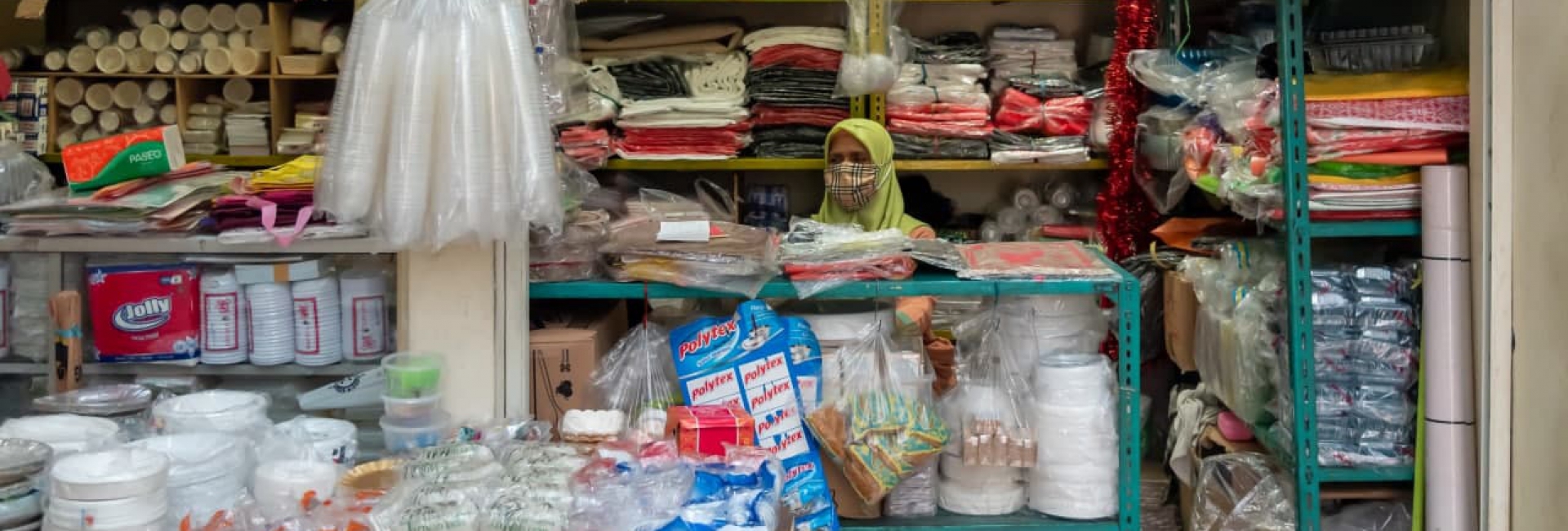The coronavirus disease 2019 (COVID-19) pandemic has dramatic ramifications around the world. Many countries adopted lockdown and social distancing measures to limit the spread of the disease. Although vital in containing the disease, these measures have also precipitated an unprecedented economic crisis. Small and medium enterprises (SMEs) have been severely affected by the pandemic. These SMEs account for a large portion of production and employment in low- and middle-income countries (LMICs).
There are indications that the pandemic has hit women disproportionately, both within their own homes and in the marketplace, with a risk of long-term disempowerment and inequality (Gates Foundation, 2020; Monash Gender, Peace, and Security Centre, 2020). Women in LMICs also hold a relatively larger share of small businesses compared to large enterprises. Many of them run the day-to-day business and work themselves. However, female workers had to bear an additional burden of domestic work and care for children or other dependents while schools were closed and mobility restrictions were in place.
Although Indonesia, the Philippines, and Vietnam have introduced support measures for SMEs, women-led SMEs may not widely benefit from such measures if they are not gender-sensitive. For instance, women-led SMEs face challenges in access to capital. Prerequisites to the access to most commercial forms of financing include extended operating history, steady revenue streams, and an abundance of fixed assets for collateral. Unfortunately, most women-led SMEs fall short on these fronts. Similarly, there may be other constraints on women’s ability to benefit from support measures.
Therefore, without targeted interventions for women, gender-specific analyses, or female leadership in crisis response and recovery strategies, general government support measures for SMEs may not be enough and women-led SMEs may need further assistance to achieve lasting economic recovery.
In particular, this study is aimed at:
- assessing the gendered impact of SME policy responses for the period of April–December 2020; and
- proposing practical and specific recommendations to improve policies and practices towards strengthening gender responsiveness for the SME sector.
Key research questions lie on three aspects: beneficiaries and types of responses, COVID-19 survival strategies, and lessons learned.
This research uses mixed methods. Data and information will be obtained from various sources, such as primary data from surveys and interviews and secondary data from government agencies or other researchers.
The primary data collection methods are as follows.
- an online survey of SMEs
- virtual focus group discussions (FGDs) with men- and women-led SMEs. The FGDs will focus on the challenges encountered by these enterprises, whether and how they were able to secure assistance from the measures rolled out by the government to help SMEs, and the strategies and best practices that can be replicated and upscaled to help SMEs recover from the pandemic and become resilient against any crises.
- virtual key informant interviews with representatives from government agencies responsible for the design and implementation of the policy responses. This provides information on policymaking processes and answers the questions about whether and how gender analyses are integrated into different programs and initiatives.




